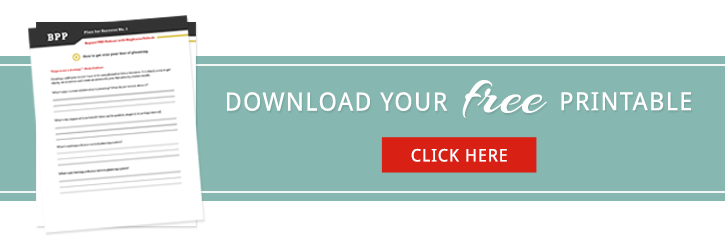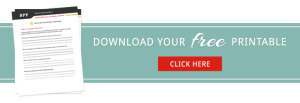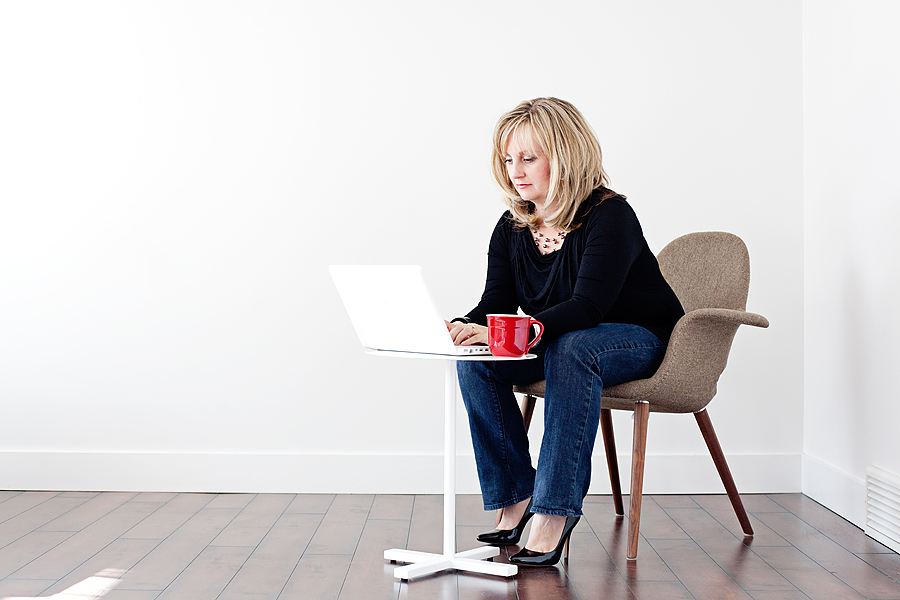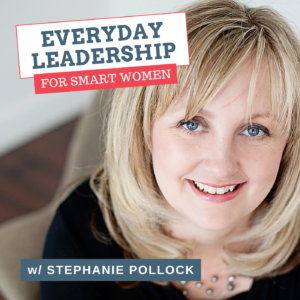“When things aren’t adding up in your life, start subtracting.”
~Anonymous
Think about it for a minute. How many decisions do you make every single day?
I bet it’s in the hundreds.
We live in a society that pulls at us from every direction. We often feel pressured to perform to a certain standard (you know you succumb once in while at least!). Whether it’s the Martha Stewart birthday party or the tough decisions an entrepreneur is faced with on a regular basis, it doesn’t really ever end.
In those crazy moments, when the sense of overwhelm strikes and we’re forced into another decision – big or small – how can we trust the quality of those decisions? What can we do to eliminate decision-making so that our stress can be reduced and peace of mind improved?
In today’s podcast, we will review what causes our stress to elevate, what it is that we ourselves contribute to the cycle, and some strategies to implement to improve your quality of life, reduce triggers and find opportunities to do better and therefore, be better. We have a tendency to complicate things and it just doesn’t always have to be that way.
It’s the simple things sometimes that send us over the edge. Join me so we can tackle the exhaustion factor involved and discover how to stay ahead of the decision making fatigue syndrome.
Full Transcript:
Hey there! Great to have you here for another show.
“When things aren’t adding up in your life, start subtracting.” Anonymous
We live in a society that pulls at us from every direction. We often feel pressured to perform to a certain standard (you know you succumb once in while at least!). Whether it’s the Martha Stewart birthday party or the tough decisions an entrepreneur is faced with on a regular basis, it doesn’t really ever end.
In those crazy moments, when the sense of overwhelm strikes and we’re forced into another decision – big or small – how can we trust the quality of those decisions? What can we do to eliminate decision-making so that our stress can be reduced and peace of mind improved?
In today’s podcast, we will review what causes our stress to elevate, what it is that we ourselves contribute to the cycle, and some strategies to implement to improve the quality of your life, reduce triggers and find opportunities to do better and therefore, be better. We have a tendency to complicate things and it just doesn’t always have to be that way.
It’s the simple things sometimes that send us over the edge. Join me so we can tackle the exhaustion factor involved and discover how to stay ahead of the decision making fatigue syndrome.
Let me ask you a question.
How many times have you berated yourself for not having better willpower? Whether it’s about going to the gym, or sticking to your CEO time, or working on that book that’s languishing on your desktop, I’m guessing you’ve had many moments where you wished you were more disciplined and could keep your willpower up like those ‘other’ people.
So what if I told you that it wasn’t actually about willpower at all, and much about the decision-making process that precedes any moment where you feel you need better willpower.
This my friends is the heart of what decision fatigue is all about. And the good news is that there are some really simple things you can do to manage it, thereby instantly giving your willpower a big boost.
First, let’s start by talking about what decision fatigue is. According to Wikipedia, it is:
In decision making and psychology, decision fatigue refers to the deteriorating quality of decisions made by an individual after a long session of decision making. It is now understood as one of the causes of irrational trade-offs in decision making.
Essentially, decision fatigue shows up when we’re responsible for making decision after decision, whether big or small and eventually, we just wear out and the quality of our decision making goes down.
This is exactly the reason we reach for the chocolate bar or extra coffee at 4 pm – we’ve been making micro and macro decisions all day long, and by 4 pm we’re not only tired physically, but we’re tired cognitively as well. So our willpower reserve is on low, and that chocolate bar is just much too easy to say yes to.
Decision fatigue often answers the question, “Why do I make bad choices even when I know I shouldn’t?”
What’s important about this concept is that it takes away the idea that we are either people of great willpower, or we are weak and succumb to our impulses. Instead, it suggests that there are specific ways we can better manage our decision-making capacities so that we don’t deplete as quickly.
Take for example a story in the New York Times that showcased how decision fatigue impacted judge rulings. You can read the full story via the show notes page, but the gist is that three different men being held in an Israeli prison went before a panel to appeal for their freedom, yet in the end, only one was set free. What was remarkable was the timing of when the men went before the panel — one was at 8:50 am, the second at 3:10 pm and the final one at 4:25 pm. Guess who was set free? If you guessed the man at 8:50 am, you’d be right. And to be clear, this isn’t an isolated case – in their research of more than 1,100 cases those that saw the panel in the morning received parole 70% of the time, while those who came in the afternoon received parole less than 10%.
Why the extreme vacillation?
Decision fatigue.
Spending their days needing to making a stream of hard decisions basically wore them down. By the afternoon, their decision-making capabilities were running on empty.
This is why we see more acts of violence in the evenings, not at 7:30 am. It’s why people who commit to a morning practice of exercise or writing or anything else of importance tend to be more effective at getting results than those who wait until the end of the day.
Bottom line: we only have so much willpower fuel in our tanks, and as we navigate the day it continues to get depleted.
Our willpower is like a muscle, and over the course of the day, it gets tired of being used without reprieve. That muscle is too fatigued to make good, healthy decisions, and will often result in the easiest, most instantly gratifying decision – based more on our impulses and emotions, than on our rational, logical mind.
This does not bode well if we’ve got important work we want to do but just can’t seem to get around to getting it done. Nor does it help us when we have high stakes decisions to make that we seem to be circling around and around again, feeling paralyzed by indecision.
You have to ask yourself: are all the small decisions I make in a day impacting the important decisions?
Here’s the good news: while we can’t abolish all decision-making, there are some easy things we can do to slow down the process.
I’m going to suggest a three-step approach to reducing decision fatigue in your life and business.
- Plan and prepare
- Complete the big rocks at the beginning of the day
- Establish easy-to-follow routines
Let’s break down each one.
1. Plan and Prepare
Ok, you know I love to plan, but honestly, when I do it, it helps me stay happy and on track. Let me give you a non-business example. Every second Sunday, I spend a few hours with my cookbooks, my Evernote food clippings, my Bullet Journal and calendar, and my grocery store’s online shopping service. I map out two weeks worth of meals for our family.
This is an investment of time, which luckily as a foodie and cook, I love, but even if I didn’t love the process, I’d still invest in it. Taking a couple of hours every second Sunday organizing my meals and grocery list ensures that I don’t pick up the kids from school every day and have to decide what’s for dinner, and then race to the supermarket to get that day’s ingredients.
Instead, it’s all there for me in advance. All I need to do is order the groceries I’ll need or take ingredients out of the freezer in time. This has vastly decreased my mealtime stress, reduced food waste, and extra spending, and ensures that my family receives a made-from-scratch meal about 90% of the time.
And listen, sometimes I get behind and forget to do this. Guess what happens. We usually have some form of convenience food that is not very healthy, cheap or even tastes very good.
So, planning and preparing go a LONG way to reducing your decision fatigue.
What I want you to do is identify some of those areas of your life and work where you find yourself constantly having to make decisions around, and see if you can plan and prepare ahead of time leaving you more emotional energy the rest of the week.
Here are a few ideas for both business and life, many of which I try to do on a regular basis:
- Organize clothes the night before
- Spend time on Sunday preparing food for the lunch week (e.g. I often make mini muffins for my kids, cut up veggies, etc)
- Take 15 minutes every Sunday to identify where you’ll focus your work week. I break mine down by each day and what I’ve got on the go.
- Take 60 minutes once a month to map out your editorial calendar for the next 30 days so you don’t have to ask “What should I blog about today?”
- Register for a gym class so you don’t have to decide if you should go to the gym because you’re already signed up to go
- Batch key activities in one go so you aren’t having to manage them each week — get them all done at once
- Have the same thing for breakfast every morning so you don’t need to decide what to eat
- Determine your 90-day focus to avoid having to make decisions about new opportunities.
As you can see, there are many simple ways you can stay ahead of decision fatigue and make your life a whole lot easier. Look at Steve Jobs — wonder why he always wore that same black turtleneck? That’s because he didn’t want to use his energy to make a decision about clothing, and instead, use it for the decisions that mattered most.
If we’re fatigued, we cave. Makes sense, right?
2. Complete the big rocks at the beginning of the day
I’m not going to tell you that you need to start getting up at 5 am, although I’m betting you’d benefit from doing it. But truthfully, it’s not the right approach for everyone. I’ve tried many times, but with two little kids at home, it’s just not always possible without me sacrificing my sleep and I am someone who needs at least 7.5 hours a night to be functional.
So, while you could certainly start getting up earlier especially if there are some really important areas of your life and work you know you’re just not going to get to otherwise, for now, I just want you to concentrate on moving your priority activities to earlier in the day.
More often than not, we’re talking about your CEO activities that often get sacrificed at the altar of the day’s busy work. These are the areas of business that need attention if you’d like to grow but are often put on the backburner while entrepreneurs attend to the daily fires.
Assuming you’ve done your work in the first step, and you’ve mapped out your priorities for the week, or at the very least for your day, then do your best to knock off the important stuff first thing while your reserves are high. We both know that your likelihood of completing the important stuff dramatically decreases as the day wears on, which is why we can get stuck in the bad habit of bumping our important stuff to the next day, and then to the next day, and then to the next week, month, quarter etc.
Now, if you’re used to letting the day rule you vs you ruling your day, this will require some practice. You can grab my CEO Fast Track guide via the show notes at stephaniepollock.com/bpp039 and that will walk you through the key areas you need to focus as an owner, but otherwise, this will just take some practice, commitment and most importantly, scheduling. If it’s on your calendar, you’re way more likely to have it happen than if you just hope to make time.
This may mean that you bump your schedule around to do client work later in the day, and use the mornings for your business growth plans. It might mean you don’t take any meetings before 11 am. Or it might mean you need to get up 30 minutes earlier to give yourself focused work time.
Whatever it takes, knowing now that your leadership capacities are constrained the later into the day you go, then adjust your schedule accordingly.
Ok, let’s talk about the final step, which is in some ways a blend of the first two.
3. Establish easy-to-follow routines
If I’m honest, I’m a person who both loves and loathes routine. I know that when I follow a routine, my life and work just works better. But truthfully, sometimes I just don’t want to. And when I fall off my routines, it’s never pretty.
So I know this works for me, and for my clients, even if we are one of those ‘non-routine’ loving people.
Again, a non-work example. Every single weekday morning, my routine is the same. I get up at the same time, and follow a set of actions including most importantly, making coffee, followed by making school lunches, waking up the kids, feeding us breakfast, getting dressed etc until they are walking into school at 8:25 am.
This routine rarely wavers and is almost down to the very minute for the first 90-minutes of my day. Sounds constraining, but it’s actually incredibly liberating.
I don’t need to decide anything. I just follow the routine without even thinking. My kids know what to expect, and so we don’t have to fight about the silly stuff – depleting our emotional reserves before the day has even started. And because I’m prepared after completing step one, I know what we’re all wearing, and eating for lunch.
This means that when I sit down to my desk at 8:45 am, I’m in a good place to start my workday with a full tank.
Routines work. They empower us by making things easy, which means we have the personal capacity to do the hard stuff, which, let’s face it, is the work of any entrepreneur.
So where could you create some routines your life that would facilitate ease in other areas?
***
I’ve used a lot of life examples today for the sake of simplicity, but naturally, all of this applies to our business. If you’re spending your workdays trying to decide the same thing over and over again like, “What should I blog about today?” or “What should I post on Facebook?” or “Should I say yes to that opportunity?” or “What should I work on today?” you are going to deplete your ability to do well in the stuff that actually matters for your business. And if you’ve used up a good store of your willpower before your workday has even begun because of all the micro personal decisions you’ve made, then you’re reducing your leadership impact.
The more choices you have to make every day, the less power you have to make good ones as the day goes on.
And I’m just going to throw in one bonus step to consider, which is probably one of the most important ones of all.
Don’t make important decisions near the end of the day. Let’s just assume that 5 pm isn’t the best time to second-guess your new business plan, or to decide to add a new project to the mix, or say yes to an opportunity you’ve been presented with. Be smart and sleep on it.
Ok, so hopefully I’ve sold you on taking some specific steps to reduce your own decision fatigue.
Have a wonderful day and I’ll catch you on the next episode.
Work with Me:
Ready to make meaningful progress on a big goal before the summer months hit?
I’m taking on a few new clients beginning in April for my 90-day Make it Happen coaching intensive. This private coaching program is perfect if you have a project or two you’d like to get complete and shipped before the summer months hit and things slow down. We’ll be working together every week to ensure you stay focused and on target with your goals. It’s designed as a get-it-done program with lots of help,
This private coaching program is perfect if you have a project or two you’d like to get complete and shipped before the summer months hit and things slow down. We’ll be working together every week to ensure you stay focused and on target with your goals. It’s designed as a get-it-done program with lots of help,
We’ll be working together every week to ensure you stay focused and on target with your goals. It’s designed as a get-it-done program with lots of help, advice, and accountability. We’ll start the beginning of April, so if you’re interested in grabbing a spot, check out it out here. We can hop on the phone to make sure there’s a good fit first.
Recommended Resources:
Make it Happen – 90-Day Coaching Intensive
Do you suffer from decision fatigue
Thanks for listening:
I want to thank you for listening and to those that have taken the time to review the show. If you like the Beyond PRO Podcast, please consider leaving an honest review in iTunes. Your review goes a long way to help this podcast get found by more people. Thank you!
You can review & rate the show here Beyond PRO Podcast
Liked this episode? Please consider sharing.
Just click on the image to tweet about this episode, or click on any social share buttons below. Thanks for your support.






